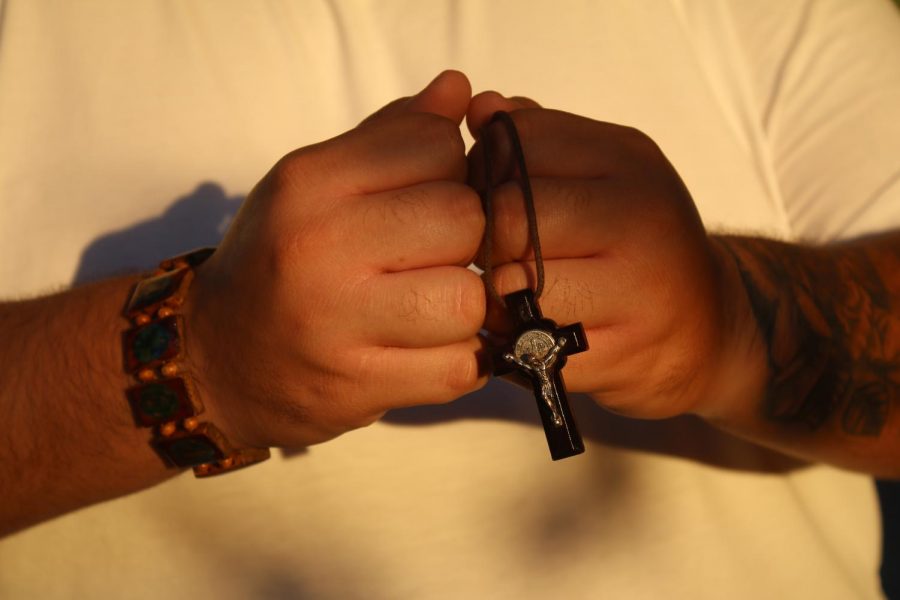On April 2, Senator Jerry Hill brought to the California Senate SB 360, a bill that would take away from clergy members their exemption to refrain from reporting on sexual abuse during a confidential conversation.
The bill has gained both support and opposition from sexual abuse victims and the Catholic Church. The supporters all agree on the fact that it’s about time, while clergy members say that it’s a violation of their First Amendment.
“It is a violation of religious freedom that is in the constitution, that’s the most important thing. The government should not encroach on the right of the people to worship, that they are free to worship without any interference of the government,” said Deacon Gus Mora from St. Joseph the Worker Parish in Winnetka. He says that the government must respect the principle of separation between church and state, their religious liberty.
Clergy members are required to report on child abuse and neglect, among 46 categories of professionals from teachers to psychiatrists, but because of the Sacrament of Confession, where people can confess to priests, they are exempt from sharing anything related to child abuse to the government on account of privacy that the penitential rite grants.
Originally, SB 360 was proposed to require clergy members to disclose any child abuse or neglect during confessions, but the bill was later amended in May to require clergy members to only disclose on such information that involved other clergy members or coworkers.
This bill was proposed in response to recent sexual abuse scandals that came to light. During the hearing in April, Hill said that earlier that week a priest from the Bay area was arrested for 30 accounts of child abuse from 2016 and 2017 and that child abuse within faith organizations is still a huge issue. His bill was proposed in response to the recent child abuse scandals that have gained a lot of attention.
Hill said in the hearing, recorded and published on the California State Senate media archives, that “California would not be trailblazing in this measure” before he began listing several states including Indiana, Connecticut, Mississippi and others that already have “similar statutes and operate under the same constitution and the same Bill of Rights that we do.”
“It’s time that California puts its children first,” said Hill.
Kameron Torres, a sexual abuse victim, followed Hill’s proposal with his testimonies of being sexually abused twice by different men under the Jehovah’s Witnesses group he grew up in. He said the abuse started when he was six and they told him “don’t speak about it, it’s in God’s hands and he’ll take care of it.” Torres said it wasn’t until two years ago that he found out they were part of a cult that hid thousands of accounts of sexual abuse cases but according to him, they still roam free.
“I think it’s time that the universe is telling us to protect our children,” said Torres.
He was followed by many supporters from different organizations, including other former Jehovah’s Witnesses abuse victims. One woman, holding back tears, said it was her first time speaking in public about being abused and that it was scary but she supports the bill.
In May this year, Pope Francis issued the first law that obligates Roman Catholic officials worldwide to report sexual abuse from clergy members to their superiors as well as any attempts to cover it up.
Bishops under the Catholic Church established the Charter for the Protection of Children and Young People in June 2002, the same year that the Boston Globe published a series of reports revealing hundreds of sexual abuse cases from the Catholic Archdiocese of Boston. The document contains the Church’s responses to child sexual abuse and a foundation for prevention programs, one of them being the Office of Safeguard the Children and Safeguard the Children Parish Committees.
Under these programs, Virtus “Protecting God’s Children” Training was installed that teaches adults who work or volunteer with children different steps to prevent/report on child abuse. Since its beginning, over 329,000 clergy, staff and volunteers have been trained, according to the Virtus Training website.
Deacon Gus is a facilitator for Virtus Training, meaning he leads the three-hour training sessions. He says that more people are talking about the sexual assault cases during the sessions and give their opinions on what the church should do. But he does not believe that the bill is a solution.
“The priests will fight tooth and nail to preserve that confidentiality,” said Deacon Gus. He said that if the bill were to pass, people will no longer go to confessions.
As a grandfather, he says he’s relieved that this training exists because sexual abuse can happen anywhere.
“There are so many people out there who have evil intentions,” said Deacon Gus. He mentioned that the church’s biggest mistake was thinking that sexual abuse could be “cured” by removing a priest from their church and transferring them somewhere else.
The bill is currently on hold because Hill believes that it will not carry enough support after the first hearing, according to a press release statement.
“This issue remains important to me, and I will continue to champion it in the hope that my colleagues can come together on legislation,” Hill stated. “I strongly believe that for any institution self-policing and self-investigation are not effective ways to combat alleged abuse, as our own state Legislature has found. To be clear, I have placed SB 360 on hold. The bill is on pause, it has not been withdrawn.”












